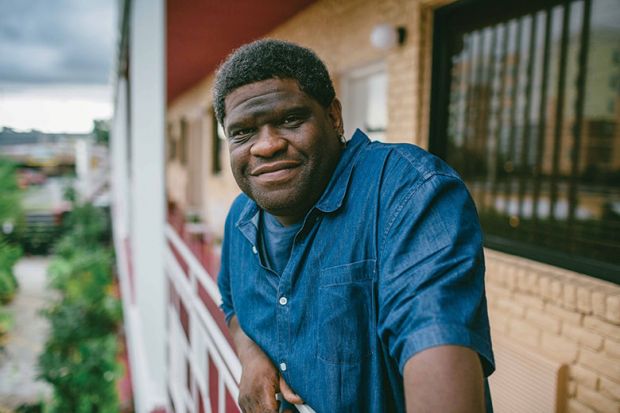“I’m not being hokey when I say you learn things from teaching,” Gary Younge, editor-at-large of The Guardian, told Times Higher Education after being appointed professor of sociology at the University of Manchester.
The post offers Mr Younge a chance not just to return to teaching university students after previous stints, but also to research the issues he has focused on in journalism – like race and identity, or knife crime – in a different way.
“I know that I won’t have to have an opinion every Thursday, which is what I have to do now,” Mr Younge said of his current life as a columnist. “I hope that there’s some time to go into things in more depth [in academia] than journalism is really built for.”
During his 26 years at the Guardian, including as its US correspondent, Mr Younge has won awards such as the David Nyhan Prize for political journalism from Harvard University’s Shorenstein Center. He is the author of five books, from No Place Like Home – A Black Briton’s Journey Through the Deep South to his most recent, Another Day in the Death of America: A Chronicle of Ten Short Lives, about gun violence.
Mr Younge, who was born in Stevenage, Hertfordshire to Barbadian parents, has also taught as a visiting professor of public policy and social administration at Brooklyn College, City University of New York, along with other “episodic bits of teaching in prisons and universities”.
He had lectured at Manchester as an honorary professor – on “media portrayals of knife crime and youth violence” and on long-form writing – and a Manchester academic told him his most recent book was “a work of sociology”.
In light of all that, “it didn’t seem like a crazy leap” to become a professor of sociology, said Mr Younge, who last week joined striking University and College Union members on picket lines at Goldsmiths, University of London.
In terms of what he wanted to research at Manchester, he highlighted “connections between school exclusions and knife crime” as one issue he had long wanted to explore in greater depth, adding that he wanted to find the areas “where I can usefully contribute”.
His increasing focus on long-form work, having found himself wanting “to do something that’s going to last in a different way”, also made the switch to academia seem a good fit.
“There comes a time, for example in America, where every new mass shooting, you’re lost for words,” said Mr Younge of journalism. “You’re like, ‘I’ve done this seven or eight times, I’ve got nothing new to say.’ The things that you want to say are bigger than what can be said in that moment.”
Meanwhile, teaching, he said, “forces a kind of humility on you”, as it means asking yourself the question: “Well, how do you know that, actually?”
And teaching means dealing with “a different generation of people” who have an “entirely different perspective” and a “lack of jaded outlook that is really quite refreshing”, said Mr Younge, a student union vice-president during his time as an undergraduate at Heriot-Watt University.
Asked if he wanted to achieve political impact in academia, he said that “all of this work has a political impact, or it should, I think – not party political, but political. You’re trying to change the way people think and understand the world, either with more information or a different slant.
“That won’t change…It’s not like they [Manchester] had never read my columns before they hired me. I’m not going through the process of learning about sociology to become a Tory.”
He continued: “Because I’m aware of my biases, I find it very easy, particularly when teaching, to, if anything, encourage dissent and argument. When you’re at university you’re teaching people to think for themselves, not teaching people to think like you.”
Given his journalistic focus on racial injustice, would he expect to be active on the issue of UK universities’ dire record of failure to progress black academics into the professoriate once he joins Manchester in April?
Mr Younge said that he was “wary”, as a newcomer to academia, of saying “I’m going to kick up a stink about this, that and the other”.
But he added: “I’m leaving one profession which has an appalling record of promoting non-white people…and establishing their voices as part of the mainstream…and I’m entering another profession that is suffering, not the same thing, but an analogous crisis.”
He continued: “I’m still the same person. I’m going to talk about racism wherever I am…I expect to join a trade union, to be an active anti-racist and to work out the best use of what I can offer.”
Register to continue
Why register?
- Registration is free and only takes a moment
- Once registered, you can read 3 articles a month
- Sign up for our newsletter
Subscribe
Or subscribe for unlimited access to:
- Unlimited access to news, views, insights & reviews
- Digital editions
- Digital access to THE’s university and college rankings analysis
Already registered or a current subscriber? Login










